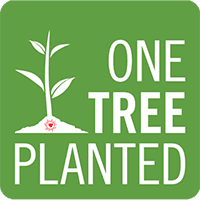
25 trees will be planted on your behalf for every experience purchased, via our partnership with One Tree Planted.
See more at onetreeplanted.org
Maasai society have their own lifestyle which differs from other societies in Tanzania. They have their dressing styles, decorations and way of living. They wear the rectangular fabric popularly known as Shuka in Swahili language and which come in different colors. The majority of Maasai women throughout the many Maasai communities live a life of poverty and cultural oppression. Men are the heads of the households and the village. They have control of almost every aspect of life and hold almost all the leadership roles.
Moreover, Maasai women’s main source of income is through selling traditional beaded jewelry. However, due to their vulnerability in lack of education, women do not have a systematic way of financially protecting their own economic interests. In this regard, here is where you can support the Maasai women through a mutually beneficial exchange of information in making informed financial decisions.
In its essence, most of the women from Maasai tribes devote their time to milking, taking care of calves, and domestic work. This kind of labor is currently the priority allowed for women as there is less emphasis on education and community engagement which might allow women to have more options for sustainable development in the future.
The majority of the women in the village do not speak English, as such, you will be supervised on the ground by a locally trained coordinator to ensure there is a smooth communication between the women and yourself. The main goal is to facilitate Maasai women with a view to prepare their future that will guide them to have fruitful life into their old age.
Due to the remote location of this program and limited local transportation, you may be required to stay the first night in Monduli. Additionally, placement is in a Maasai village in Arusha, but to increase immersion you may get spread across various villages.
Volunteer experiences have a direct and positive impact on local communities by injecting money into the local economy through the purchase of food, transportation, and tourism activities. Volunteering is a great way to give back to the comunity and make a difference in the world. Depending on the type of volunteer experience you are interested in, your time can be spent improving educational resources and opportunities, providing medical services to underserved communities, or promoting environmental conservation and sustainable farming techniques.

25 trees will be planted on your behalf for every experience purchased, via our partnership with One Tree Planted.
See more at onetreeplanted.org

1% of gross sales will be donated to 1% for the Planet-approved charities via our partnership with 1% for the Planet.
See more at onepercentfortheplanet.org
We will meet you at JRO (Kilimanjaro International Airport) or ZNZ (Abeid Amani Karume International Airport) in one of these time slots:
Please keep in mind that in the village things are done on an as-needed basis. This is just an example of what your week might look like during your homestay, but activities may change depending on weather, community needs, ceremonies or other circumstances. Your flexibility and ability to adapt to changes in your new surroundings well will be of great benefit during this amazing experience.
Meals are inspired by the local cuisine and consist of a lot of corn, rice, potatoes, and bananas. Beef, goat meat, beans, and a few green leafy vegetables will help to add nutrients to your daily meals as well. There are no shops within walking distance, so if you are a picky eater or feel that you may not be amenable to the local style meals, please feel free to bring supplemental food items with you from Monduli or Arusha, with the understanding that there is no refrigeration available.
Expect a very ‘back to nature’ approach during your stay here! You will live as a visitor in a homestay residence which may include the traditional house made from wood, sticks, cow dung and clay-soil. The Maasai generally live without electricity, and though some houses have recently acquired solar cells, you should not expect it. There is no running tap water and no western toilets. You can expect squatting toilets will be available and the occasional showering is done by using a bucket. All participants are expected to be environmentally aware and to use all resources with extreme restraint, especially water, paper, and electricity. This accommodation is in a Maasai village in Arusha, but to increase immersion you may get spread across various villages.